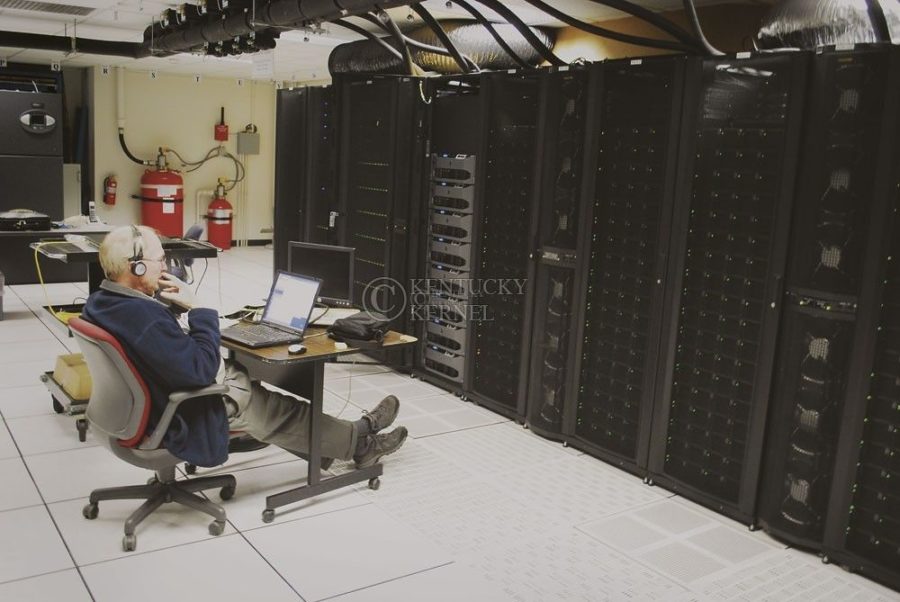New supercomputer helps UK reach top research goals
October 6, 2010
By Drew Teague
UK has kicked up its technology to meet the Top-20 goal set by President Lee Todd.
The university recently upgraded its supercomputer to get one that is three times faster than the old one that was installed in 2007.
Matthew Beck, a professor and researcher in the College of Engineering, sat on the committee that selected the vendor and computer, called the Lipscomb Cluster. Beck said he knows the supercomputer will not only help engineers, but many different researchers from all over.
“The Lipscomb Cluster is to enable computational research across disciplines to researchers throughout the Commonwealth of Kentucky,” Beck said. “Any researcher in the entire Commonwealth of Kentucky can get access to the computer.”
“The computer is ultimately the main engine for doing math,” Beck said. “Those calculations are basically used in a wide range of areas.”
The supercomputer can be used for a variety of calculations like usefulness of new drugs, how things were in the early university, the shape and function of proteins in the body and questions about inorganic systems, Beck said.
The new supercomputer is the Dell PowerEdge C6100 High Performance Computing server chassis, with the Libscomb Cluster being part of it.
Vince Kellen, UK’s Chief Information Officer, helped select the vendor the supercomputer came from. Kellen said he is optimistic that the new supercomputer will help the university.
“This one is about three to four times more powerful and faster than the old one,” Kellen said. “It lets our researchers go through their research faster.”
Beck said the reason for the rise in current technology is the gaming consoles and gamers.
“On one hand you thank or blame everyone that plays computer games,” Beck said. “The software makers are constantly making faster, better, more powerful hardware.”
The increase of power and speed at which calculations can be done, currently 40 teraflops, or 40 trillion calculations per second, was not the only reason the new computer was needed at UK.
“In terms of research it probably has nothing to do with getting the same thing done faster or getting more of the same thing done in the same amount of time,” Beck said.
“The real driver for making sure the latest, greatest technology is available to researchers is that every step up in power and accountability that can be offered is one step towards opening the potential of solving problems in new areas,” Beck said.
Kellen said the university gets the money from funding and has about $1.3 million for the supercomputer.
Those wanting to use the supercomputer for their research can visit the UK IT website and fill out the proper form.























































































































































